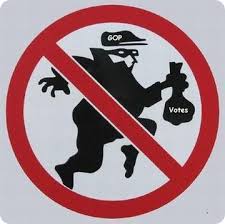Voter Fraud in Central Minnesota
The question of whether voter fraud exists remains a controversial issue that surfaces every election cycle with little resolution. 
Common sense suggests that some of the 500,000 Minnesotans who take advantage of Minnesota’s same day registration law in presidential election cycles may not be eligible.
For many conservatives it’s not a question of whether fraud exists but to what extent. Liberals on the other hand tend to dismiss the issue by pointing to the lack of prosecutions.
But Willmar media report that three convicted felons were charged recently with voting in the 2016 general election despite being ineligible to cast a ballot.
Bret Joseph Kasel, 34, and Darrell Leonard Webb, 57, both of Willmar, were charged in Kandiyohi County. Kasel was charged Feb. 22, and Webb March 1.
Lisa Suzanne Anderson, 51, of Starbuck, was charged Feb. 28 in Pope County.
All three are accused of voting before they had completed probation for felony convictions. All also reportedly said they did not know they were ineligible to vote.
By Minnesota law, convicted felons are legally prohibited from voting while they serve all parts of their sentence.
An alert city clerk notified authorities of one individual’s alleged ineligibility. The Kandiyohi County Auditor’s Office informed police of the second alleged infraction. In all three cases, police clearly took the allegations seriously.
Kasel completed his felony probation last December. But a month before that, he voted, according to his criminal complaint. He was “under the impression that he could vote,” according to the criminal complaint.
Police received a report Dec. 16 from the Kandiyohi County Auditor’s Office that Webb had voted in the Nov. 8 election. According to the criminal complaint filed with his charges, he spoke with a Willmar police officer, and told him that his last felony conviction was in 1989.
Webb did not tell the officer about his most recent August 2016 felony conviction, according to the criminal complaint. He told police that he signed the voter registration without reading what it had said.
Webb is facing an additional felony charge for registering as an ineligible voter.
Anderson reportedly met with the Starbuck police chief Nov. 9, after the city clerk informed police that Anderson may have illegally voted.
At that time, Anderson told the chief that she was not a felon, and had finished probation, according to the criminal complaint on her charge.
But the chief checked her criminal history, and discovered she was on probation through the year 2020 for a fifth-degree drug possession charge.
Most states offer provisional ballots to individuals whose eligibility is challenged on Election Day. A voter’s eligibility must be verified before the ballot is counted. But in Minnesota election judges must accept the individual’s sworn oath of eligibility and allow the vote to count.
A bill currently before the Minnesota Legislature would institute provisional ballots in Minnesota and institute other electoral reforms. Learn more about the proposed electoral reforms in this post by American Experiment’s Peter Nelson.